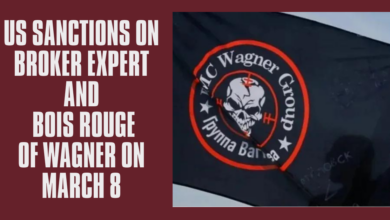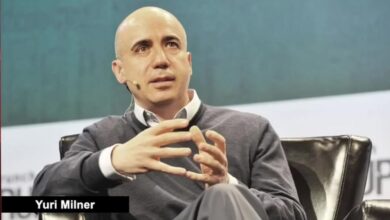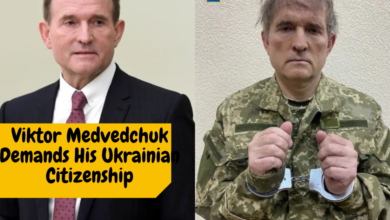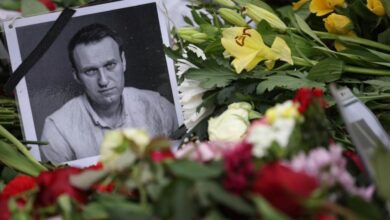Yakunin Vladimir: Controversial Russian Railways Leader and Putin Confidant in 2023
Yakunin Vladimir is a Russian businessman and a trusted confidant of Vladimir Putin. He served as the President of Russian Railways from June 2005 to August 2015 and holds the prestigious federal state civilian service rank of 1st class Active State Councillor of the Russian Federation
Yakunin Vladimir is a Russian businessman and a trusted confidant of Vladimir Putin. He served as the President of Russian Railways from June 2005 to August 2015 and holds the prestigious federal state civilian service rank of 1st class Active State Councillor of the Russian Federation.
In March 2014, he faced sanctions from the US State Department, along with other Russian officials and businessmen, due to his association with the annexation of Crimea.
Early Life and Background
Birth and family background
Yakunin Vladimir, born on June 30, 1948, in Melenki, Gus-Khrustalny District, Vladimir Oblast, Russia, came into the world during the era of the Soviet Union. He had a noteworthy career, serving in the KGB during the Soviet period and being a part of the Soviet diplomatic mission to the United Nations from 1985 to 1991, ultimately becoming the mission’s first secretary in 1988. Yakunin Vladimir completed his education at the Leningrad Mechanical Institute in 1972, specializing in aircraft construction and the maintenance of long-range ballistic missiles.
Education and early influences of Yakunin Vladimir
Yakunin Vladimir completed his secondary education in 1966 and pursued higher studies at the Leningrad Military Mechanics Institute, known as “Voenmeh.” There, he specialized in the design of long-range ballistic missiles and successfully graduated in 1972.
Following his graduation, Yakunin Vladimir embarked on his professional journey at the State Institute of Applied Chemistry, where he was employed from 1972 to 1975.
After completing his service in the Soviet Army in 1977, Yakunin Vladimir assumed the role of a senior engineer within the State Committee for International Trade, operating under the Council of Ministers.
Early Career
Yakunin’s initial career choices and political affiliations
Yakunin Vladimir graduated from the Leningrad Mechanical Institute in 1972, specializing in aircraft construction and long-range ballistic missile maintenance.
He began his career at the State Institute for Applied Chemistry in Leningrad, where he worked from 1972 to 1975.
Post-Military Service:
After completing his service in the Soviet Army in 1977, Yakunin Vladimir took on the role of a senior engineer in the State Committee for International Trade of the Council of Ministers.
Diplomatic Roles:
From 1982 to 1985, Yakunin led the Foreign Relations Department at the Ioffe Physico-Technical Institute.
Between 1985 and 1991, he was a part of the Soviet diplomatic mission to the United Nations, eventually becoming the mission’s first secretary in 1988.
Service in the KGB:
During the Soviet era, Yakunin Vladimir also served in the KGB.
Appointment by Putin:
In 1997, Vladimir Putin, who was then the head of the Main Control Department of President Boris Yeltsin’s administration, selected Yakunin Vladimir as his envoy in northwest Russia.
Transport and Railway Leadership:
From 2000 to 2002, Yakunin Vladimir served as Deputy Transport Minister under Transport Minister Sergey Frank, overseeing merchant-fleet development and seaport business.
Subsequently, he was appointed First Deputy to the Railway Transport Minister.
Head of Russian Railways:
On June 15, 2005, Yakunin Vladimir assumed the role of Head of Russian Railways.

Rise in the Russian Government
Vladimir Yakunin held several government positions and key appointments throughout his career:
- From 1985 to 1991, Yakunin served on the Soviet diplomatic mission to the United Nations, ultimately becoming the mission’s first secretary in 1988.
- In 1997, while Putin headed the Main Control Department of President Boris Yeltsin’s administration, he appointed Yakunin Vladimir as his envoy in northwest Russia.
- Between 2000 and 2002, Yakunin Vladimir held the position of Deputy Transport Minister under Sergey Frank, responsible for overseeing merchant-fleet development and seaport business. Subsequently, he was appointed First Deputy to the Railway Transport Minister.
- On June 15, 2005, Yakunin Vladimir was appointed as the Head of Russian Railways.
- In 2014, Yakunin faced U.S. sanctions due to Russia’s annexation of Crimea from Ukraine.
- In 2015, Yakunin Vladimir resigned from his role as Head of Russian Railways and declared his intention to represent the Kaliningrad region in the Federation Council, the upper house of parliament.
- Yakunin is recognized as a close confidant of Russia’s President, Vladimir Putin.

Leadership of Russian Railways
His tenure as the head of Russian Railways from a critical perspective
In 2005, President Putin appointed Yakunin Vladimir to be the head of Russian Railways. Russian Railways, a state-owned company with annual sales exceeding $42 billion, faced accusations of corruption and mismanagement, leaving it heavily reliant on state subsidies. Yakunin also drew U.S. sanctions following Russia’s annexation of Crimea in 2014 due to his close ties to Putin.
Amidst these controversies, Yakunin Vladimir was accused of channeling billions to secretive private companies. Furthermore, his son Andrey Yakunin’s application for UK citizenship was cited as a reason for Yakunin’s departure from Russian Railways in 2015. He intended to join the Federation Council, representing the Kaliningrad region. His resignation was widely perceived as a significant demotion, sparking speculation about corruption and mismanagement allegations that had plagued his career.
Allegations of corruption, mismanagement, or misuse of power
- Yakunin Vladimir faced several allegations during his tenure, including accusations of self-enrichment amidst corruption and mismanagement at Russian Railways, which had become overly reliant on state subsidies.
- In 2014, Yakunin Vladimir was subjected to U.S. sanctions due to Russia’s annexation of Crimea from Ukraine.
- Allegations also arose that Yakunin funneled billions into undisclosed private companies and illicitly moved billions of dollars from the Russian budget, laundering them in European financial systems.
- The decision of Yakunin’s son, Andrey Yakunin, to apply for UK citizenship was suspected to be a contributing factor in Yakunin’s removal from his role at Russian Railways.
- Furthermore, accusations of corruption came from a relative of President Vladimir Putin, and Yakunin found himself in the crosshairs following a report by the Federal Security Service and the Federal Financial Monitoring Service that highlighted corruption within Russian Railways.
- Despite widespread allegations of corruption, Yakunin consistently refused to disclose his income.
International Relations and Diplomatic Engagements
Vladimir Yakunin’s role in international relations has faced critical scrutiny
- Yakunin faced accusations of funneling billions to secretive private companies.
- His close ties to Putin stirred controversy.
- The U.S. penalized Yakunin in 2014 for Russia’s annexation of Crimea from Ukraine.
- Allegations of corruption, money laundering, and dubious behavior have marred his career.
- In 2013, Yakunin established the Endowment for the World Public Forum Dialogue of Civilizations, supporting research in politics, social sciences, religion, and culture. Its goals include fostering international communication on political and economic matters and seeking compromises in times of social unrest and international disputes.
- In 2016, Yakunin co-founded the Dialogue of Civilizations Research Institute with Walter Schwimmer, former Secretary General of the Council of Europe, and Professor Peter W. Schulze of Georg-August University of Göttingen. He was appointed Chairman of the Institute’s Supervisory Board.
- Yakunin has advocated for responsible leadership in a turbulent world and the development of policy proposals for international actors while exploring new diplomatic avenues.
- He emphasizes the importance of inclusive, innovative, and equitable development models.
- Yakunin calls for fostering a balanced civilization for a humane world and embracing the diversity of civilizations as a means to drive positive global changes.
- He has been critical of the West, arguing that Russia has moved away from Western influence.
Geopolitical Involvement
His involvement in organizations like the SCO and BRICS
Andrey Yakunin’s involvement in organizations like the SCO and BRICS is significant in the context of Russia’s international relations. Let’s delve into what these organizations represent:
The Shanghai Cooperation Organization (SCO) is a regional intergovernmental group consisting of China, Russia, Kazakhstan, Kyrgyzstan, Tajikistan, and Uzbekistan. The SCO’s primary objectives revolve around fostering cooperation in areas of security, economy, and culture among its member states. It’s worth noting that while Russia supports the SCO, Moscow hasn’t exerted substantial efforts to transform it into a robust security organization.
On the other hand, the BRICS is a collective of five major emerging economies: Brazil, Russia, India, China, and South Africa. Together, these countries account for approximately 42% of the world’s population and contribute 23% of the global GDP. Russia had the privilege of hosting the BRICS summit in 2015. The BRICS primarily focuses on promoting collaboration in economic, political, and security matters among its member states.
These organizations play a crucial role in shaping Russia’s foreign relations, and Andrey Yakunin’s involvement in them highlights his role in this global context.
Analysis of his influence on Russia’s global policies.
The extent of Andrei Yakunin’s impact on Russia’s global policies remains unclear based on search results. Nevertheless, the search findings do shed light on the role of non-state actors and propaganda in Russia’s foreign policy objectives. They also illuminate the influence of Russian think tanks and GONGOs (government-organized non-governmental organizations) on expert communities and public opinion in the West.
Russia’s primary foreign policy objectives in its neighboring regions revolve around establishing itself as a center of influence and nurturing positive relations with nearby nations. Non-state actors and the deployment of propaganda play a substantial role in furthering these foreign policy objectives by molding public perceptions and impacting decision-making in other countries.
Russian think tanks and GONGOs maintain close affiliations with the Russian political establishment and rely on state funding for financial sustenance. These organizations actively work to shape the viewpoints of expert communities and public opinion in the West concerning international relations matters.
Controversies and Criticisms
Controversies surrounding Yakunin’s career
Vladimir Yakunin, the father of Andrey Yakunin, has faced several controversies in his career, as highlighted in the search results:
Sanctions: Due to his involvement in the Ukraine situation, Vladimir Yakunin received sanctions from the United States in 2014. Consequently, he was banned from entering the United States, and any assets he held in the country were frozen.
Corruption Allegations: In 2015, Vladimir Yakunin was removed from his position as the head of Russian Railways amidst allegations of corruption and mismanagement. A whistleblower accused him of self-enrichment, while corruption and mismanagement left Russian Railways excessively reliant on state subsidies. Yakunin also faced allegations of funneling billions of dollars to private contractors with obscured ownership and minimal presence at their registered headquarters.
Political Connections: Vladimir Yakunin is known for his close relationship with Vladimir Putin, often consulting with him on matters related to the Russian railway company. Additionally, he previously served as the first secretary of the USSR’s Permanent Representative Office at the United Nations.
Criticism from political opponents and international communities
Vladimir Yakunin, the father of Andrey Yakunin, has encountered criticism from both political adversaries and international communities over the course of his career. Some key criticisms include:
Sanctions: In 2014, the United States imposed sanctions on Vladimir Yakunin due to his involvement in the Ukrainian crisis. Consequently, he is prohibited from entering the United States, and any of his assets within the country have been frozen.
Corruption Allegations: In 2015, Yakunin Vladimir was dismissed from his position as the head of Russian Railways in the wake of allegations related to corruption and mismanagement. A whistleblower accused Yakunin of self-enrichment, which was seen as a contributing factor to Russian Railways’ excessive dependence on state subsidies. Furthermore, he faced accusations of funneling billions of dollars to private contractors who obscured their true ownership and had minimal or no presence at their registered headquarters.
Life After Russian Railways
Vladimir Yakunin, the father of Andrey Yakunin, has pursued various political and business endeavors in the private sector since his retirement. He has also been actively engaged in philanthropy.
In the realm of political and business ventures, following his departure from the position of Head of Russian Railways in 2015, Vladimir Yakunin established the Endowment for the World Public Forum Dialogue of Civilizations in 2013. This initiative is dedicated to advancing research in the political and social sciences, religion, and culture. Its objectives include fostering international communication on political and economic issues and seeking resolutions for social unrest and international disputes. Additionally, Yakunin holds the position of Chairman of the Board of Trustees for the Center of the National Glory of Russia and the St. Andrew’s Foundation.
On the philanthropic front, Vladimir Yakunin’s efforts are channeled through the Endowment for the World Public Forum Dialogue of Civilizations. This foundation focuses on supporting research in political and social sciences, religion, and culture, with a particular emphasis on promoting compromise in cases of social unrest and international disputes.
In summary, Vladimir Yakunin’s post-retirement activities and interests demonstrate his involvement in both private-sector business ventures and politics, along with a commitment to philanthropic endeavors.
International Sanctions and Implications
Yakunin Vladimir, the father of Andrey Yakunin, has been under international sanctions imposed by the United States, Canada, and Australia since 2014. These sanctions are a result of his involvement in the Ukraine situation and his close ties to President Putin. The impact of these sanctions has been significant: they have frozen his assets in the United States and Canada and barred his entry into the United States. Additionally, they have limited his ability to participate in global affairs, preventing him from traveling to the United States and other sanctioned countries.
Despite these sanctions, Vladimir Yakunin has maintained his involvement in politics and ventured into the private sector. In 2013, he established the Endowment for the World Public Forum Dialogue of Civilizations, with a mission to support research in political and social sciences, religion, and culture. This initiative aims to foster communication between countries on political and economic matters while seeking compromises in cases of social unrest and international disputes.
Yakunin also serves as the Chairman of the Board of Trustees for the Center for the National Glory of Russia and St. Andrew’s Foundation. These roles reflect his continued engagement in various philanthropic and cultural endeavors.
Legacy and Impact
Vladimir Yakunin’s Impact on Russian Politics and Global Relations: Contributions and Controversies
Vladimir Yakunin has had a significant impact on Russian politics and international relations as a result of both his contributions and controversies. Here are the key points:
Contributions:
- Modernizing Russia’s Railways: From 2005 to 2015, Vladimir Yakunin served as the head of Russian Railways, overseeing the successful modernization and expansion of the country’s railway system.
- Endowment for World Public Forum: In 2013, Yakunin founded the Endowment for the World Public Forum Dialogue of Civilizations, dedicated to supporting research in political and social sciences, religion, and culture. It aimed to foster international communication on political and economic matters as well as seek compromise in times of social unrest and international disputes.
- Infrastructure Development: Yakunin played a role in promoting transportation and infrastructure development in Russia.
Controversies:
- Sanctions by the United States, Canada, and Australia: Since 2014, Vladimir Yakunin has faced sanctions from the United States, Canada, and Australia due to his involvement in the Ukraine situation and his close association with President Putin.
- Corruption Allegations: During his tenure as the head of Russian Railways, Yakunin faced allegations of corruption and mismanagement.
- Political Connections and Influence: Yakunin has been criticized for his political ties and the impact of his influence on expert communities and public opinion in the Western world.
Yakunin Vladimir’s impact on Russian politics and international relations is multifaceted. While his leadership brought significant improvements to Russia’s transportation and infrastructure, he also faced controversies, including corruption allegations and international sanctions. These controversies have raised questions about non-state actors’ role in Russia’s foreign policy, the influence of Russian think tanks, and GONGOs (government-organized non-governmental organizations) on expert communities and public opinion in the West.
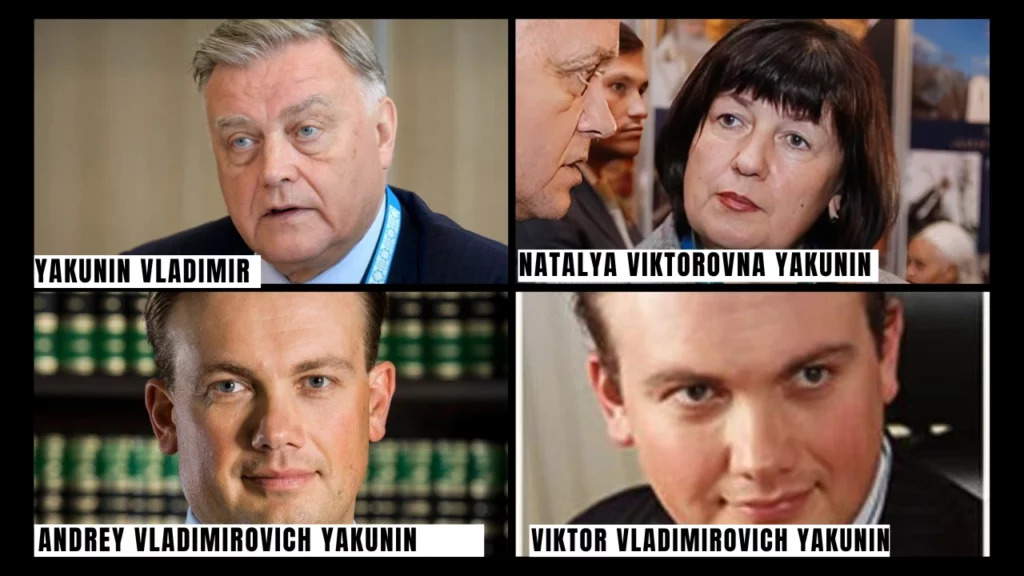
Family Background
The family of Yakunin Vladimir
Yakunin Vladimir is married to Natalia Yakunina, and they have two sons. Here are some key details about his family:
Children
- Andrey Yakunin: Andrey Yakunin is the son of Yakunin Vladimir. He holds a Ph.D. in Finance and Credit from St. Petersburg State University, a master’s degree in Economics and Mathematics, and an Executive Master of Business Administration from London Business School and Columbia University Graduate School of Business. Andrey is also an associate professor of economics at St. Petersburg State University. He has owned property in the UK and previously ran a UK-based venture capital firm known as Venture Investments & Yield Management LLP.
- Viktor Yakunin: Viktor Yakunin is Vladimir Yakunin’s other son he is known to reside in an exclusive housing complex on Lake Geneva, Switzerland. Viktor’s eight-year-old daughter attends an elite academy in the same area.
Spouse
- Natalia Yakunina: Natalia Yakunina is the wife of Vladimir Yakunin.
Books by Vladimir Yakunin
Yakunin Vladimir has written a book titled “The Treacherous Path: An Insider’s Account of Modern Russia,” which was published in 2018. Here are the key details about the book:
- Title: “The Treacherous Path: An Insider’s Account of Modern Russia”
- Publication Date: 2018
- Publisher: Biteback Publishing
Summary: In this book, Yakunin Vladimir shares his personal experiences at the forefront of Russia’s tumultuous journey, from its decline to its resurgence. With a career spanning roles as an intelligence officer, a government minister, and a decade-long tenure as the CEO of Russia’s largest company, Yakunin Vladimir takes readers from the far reaches of this vast and intricate nation to the inner sanctum of the Kremlin. The book delves into a wide range of topics, including terrorism, government intrigues, and the complexities of conducting business in Russia. It provides unparalleled insights into the post-Soviet mindset.
Reviews: Opinions about the book are divided. Some reviewers have lauded it as a multi-dimensional memoir and a nuanced portrait of contemporary Russia. They appreciate its portrayal of Russia as far more intricate than the simplistic narratives often presented in Western media. However, there are also critics who contend that it serves as a self-serving narrative, downplaying Yakunin’s own controversies and alleged involvement in corruption.
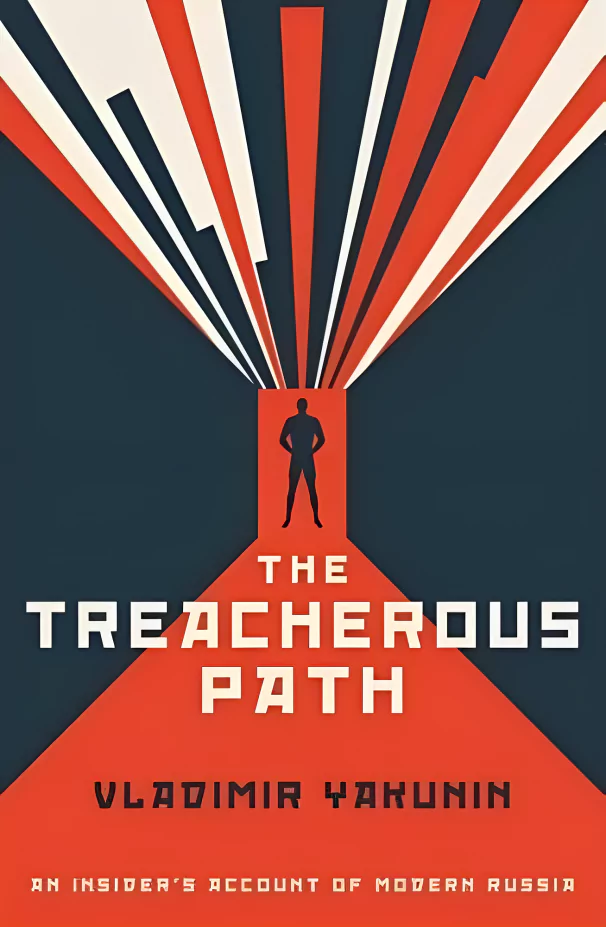
The Bottom Line
In his captivating book, “The Treacherous Path: An Insider’s Account of Modern Russia,” Vladimir Yakunin paints a vivid portrait of Russia’s complex and multifaceted journey in the post-Soviet era. With a career that spanned intelligence, government, and a decade at the helm of Russia’s largest company, Yakunin delves deep into the heart of the nation, from its vast landscapes to the inner sanctum of the Kremlin.
This literary journey isn’t just a chronological account; it’s a tapestry of Russia’s resurgence and challenges. From the shadows of terrorism to the enigmatic world of government intrigue, Yakunin’s narrative brings you face-to-face with the intricacies of doing business in Russia.
“The Treacherous Path” isn’t without controversy, as it delves into Yakunin’s personal experiences. Some see it as a multi-dimensional memoir that offers unique insights into contemporary Russia, unveiling its layers often obscured by Western media’s simplified narratives. Yet, critics argue it may serve as a self-serving narrative, downplaying the controversies and allegations of corruption that have surrounded Yakunin’s career.
In a world where Russia’s complexities remain a topic of global debate, this book provides a compelling look beyond the headlines and into the heart of a nation seeking to define its path.
FAQs on Vladimir Yakunin
- Who is Vladimir Yakunin?
Vladimir Yakunin is a former Russian public official and businessman who presided over Russian Railways from 2005 to 2015. He is known for his close association with Russian President Vladimir Putin.
- What is Yakunin’s net worth?
Yakunin’s estimated net worth is approximately $1 billion, making him one of Russia’s wealthiest individuals.
- What is Yakunin’s political affiliation?
Yakunin is a member of the United Russia party, which currently holds power in Russia. He is also affiliated with the Russian Orthodox Church.
- What are some of Yakunin’s business interests?
Yakunin is involved in a diverse range of business sectors, including transportation, energy, and real estate. He is also the founder of the think tank known as the DOC Research Institute.
- What are some of the controversies surrounding Yakunin?
Yakunin has faced allegations of corruption and cronyism and has drawn criticism for his close ties to President Putin.
- Is Yakunin subject to sanctions?
Yes, Yakunin is under sanctions imposed by the United States and the European Union.
- Where does Yakunin currently reside?
Yakunin presently lives in Switzerland.
- What is Yakunin’s educational background?
Yakunin holds a Ph.D. in Finance and Credit from St. Petersburg State University, as well as an MA in Economics and Mathematics. He has also earned an Executive Master of Business Administration from both London Business School and Columbia University Graduate School of Business.
- What are Yakunin’s hobbies and interests?
Yakunin has a keen interest in history, economics, and religion. Additionally, he enjoys hunting and fishing.
- What is Yakunin’s legacy?
Vladimir Yakunin is a figure of considerable influence in Russia, despite controversy. He played a pivotal role in modernizing Russian railways and built an extensive business empire. His close ties to Putin have entangled him in several high-profile political scandals.




